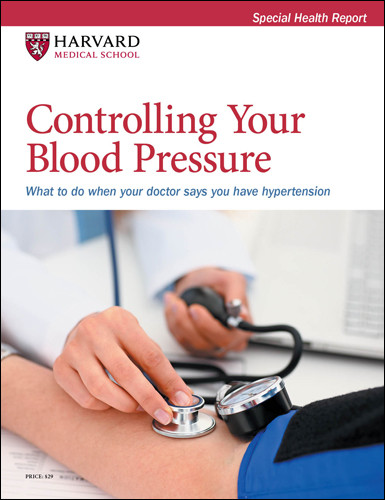Reducing sodium can help most people lower their blood pressure
In the journals
- Reviewed by Howard E. LeWine, MD, Chief Medical Editor, Harvard Health Publishing; Editorial Advisory Board Member, Harvard Health Publishing

The degree to which sodium intake affects blood pressure varies. For many people with hypertension (high blood pressure), eating a high-sodium diet definitely increases their blood pressure. But a study published online Nov. 11, 2023, by JAMA found that dramatically lowering sodium intake can potentially lead to lower readings for the great majority of people, even those with normal blood pressure.
Researchers recruited 213 adults, ages 50 to 75. Some had normal pressure, and some had hypertension. Everyone was randomly assigned to follow either a high-sodium diet (an extra 2,200 milligrams (mg) of sodium per day above their usual intake) or a very low-sodium diet (a total of 500 mg of sodium per day) for one week. They then switched to the opposite diet for another week.
When the researchers compared the results, they found that a very low-sodium diet could significantly reduce blood pressure in about 74% of the participants — regardless of their prior blood pressure status or whether they took blood pressure medication.
The findings suggest that more people than previously recognized have sodium-sensitive increases in their blood pressure, even if they don't have hypertension. While it's unrealistic to expect people to limit sodium intake to the extremely low levels used in this study, efforts to decrease the average American's consumption of 3,400 mg sodium can have major health benefits.
Image: © Peter Dazeley/Getty Images
About the Author

Matthew Solan, Executive Editor, Harvard Men's Health Watch
About the Reviewer

Howard E. LeWine, MD, Chief Medical Editor, Harvard Health Publishing; Editorial Advisory Board Member, Harvard Health Publishing
Disclaimer:
As a service to our readers, Harvard Health Publishing provides access to our library of archived content. Please note the date of last review or update on all articles.
No content on this site, regardless of date, should ever be used as a substitute for direct medical advice from your doctor or other qualified clinician.
















